
fun pre-print for your start of week reading:
"People Make Graded Judgments About The Inconceivable"
(by Hu, Sosa, and me)
doi.org/10.31234/osf...

fun pre-print for your start of week reading:
"People Make Graded Judgments About The Inconceivable"
(by Hu, Sosa, and me)
doi.org/10.31234/osf...
Another fun project from @yangxiang.bsky.social. She asks the question: do people assign responsibility to personality traits in the same way that they assign reponsibility to people? The answer: sort of!
osf.io/preprints/ps...

The Harvard Gazette has a nice story on my student @yangxiang.bsky.social and her work with @tobigerstenberg.bsky.social
news.harvard.edu/gazette/stor...
This is one of the most outstanding examples of circuit understanding I've seen in a long time. The unification of theory and experiment is beautiful.
When Malcolm presented this in my lab, the audience was cheering at the end, and one person shouted (non-ironically) "You did it!"
Now out in Cognition, work with the great @gershbrain.bsky.social @tobigerstenberg.bsky.social on formalizing self-handicapping as rational signaling!
📃 authors.elsevier.com/a/1lo8f2Hx2-...
Interesting! We’re trying to figure out _why_ LLMs don’t quite rely on counterfactual reasoning when judging responsibility. It could be—as you suggested—that they’re worse at counterfactual simulations, or that they simply don’t think counterfactuals are relevant here. Excited to dig further 🙂
24.07.2025 12:07 — 👍 1 🔁 0 💬 1 📌 0Come by our poster at CogSci (Poster Session 2, P2-X-215), Friday 8/1 at 10:30am!
24.07.2025 00:23 — 👍 1 🔁 0 💬 0 📌 0Our results shed light on how we can make LLMs more human-like and how to study the mechanisms underlying complex behavior in LLMs. Co-led by me and @ebig.bsky.social, with the great @tobigerstenberg.bsky.social @tomerullman.bsky.social @gershbrain.bsky.social (4/4)
24.07.2025 00:23 — 👍 1 🔁 0 💬 2 📌 0
LLM and human data are highly correlated, BUT they are best explained by different factors! LLMs evaluate collaborators based on force (how much output they contribute), whereas humans evaluate collaborators based on their actual and counterfactual effort. (3/4)
24.07.2025 00:20 — 👍 4 🔁 0 💬 1 📌 1
We adapted materials from human studies on responsibility and reward attributions and compared LLMs’ responses to human data and seven cognitive models. (2/4)
24.07.2025 00:20 — 👍 3 🔁 0 💬 1 📌 0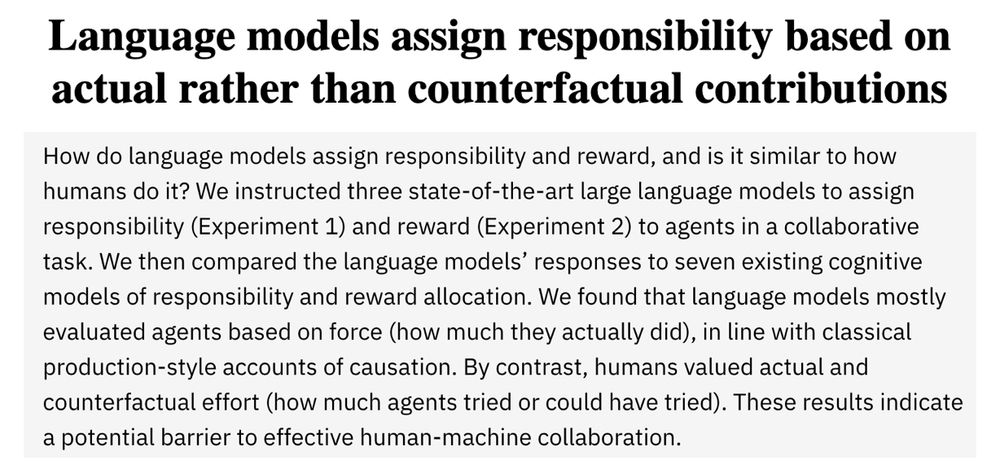
Our latest on the cognitive science of LLMs! To be presented @CogSci2025 🎉
LLMs are increasingly involved in human collaborations. How do LLMs assign responsibility and reward to collaborators? Is it similar to how humans do it? 🤖🧑
📃 gershmanlab.com/pubs/XiangBi... (1/4)
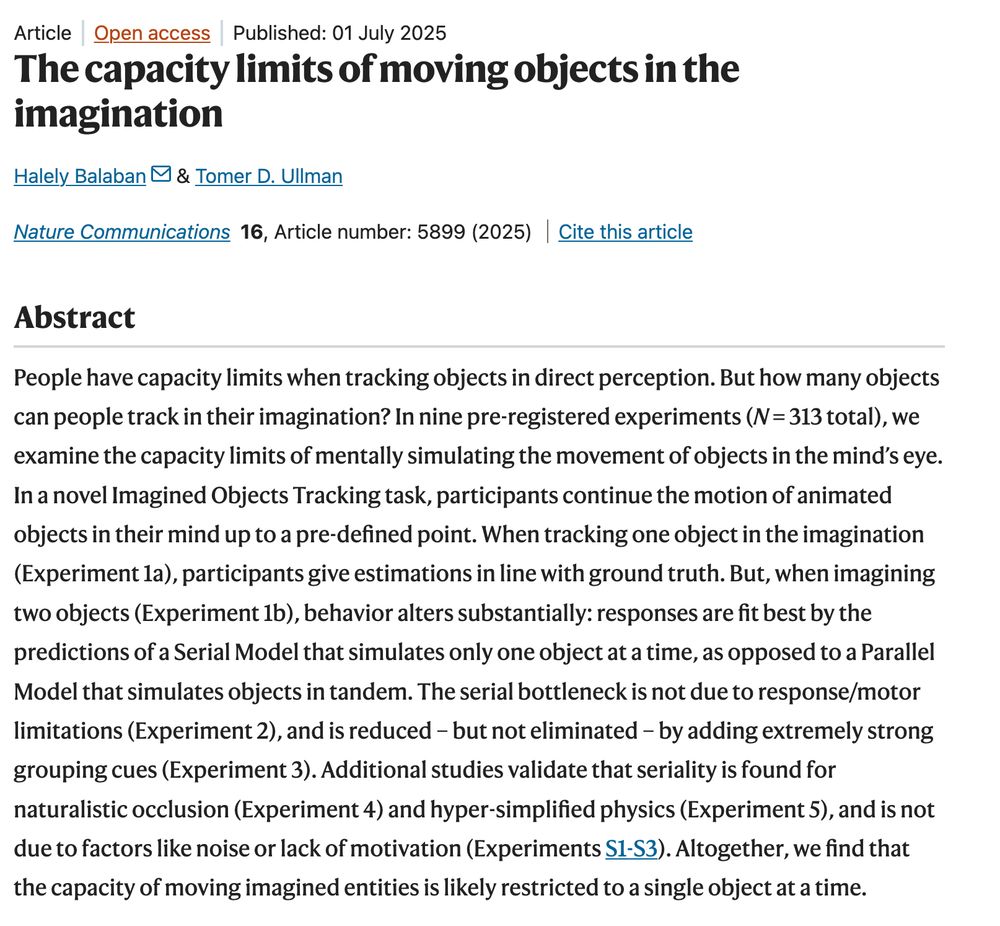
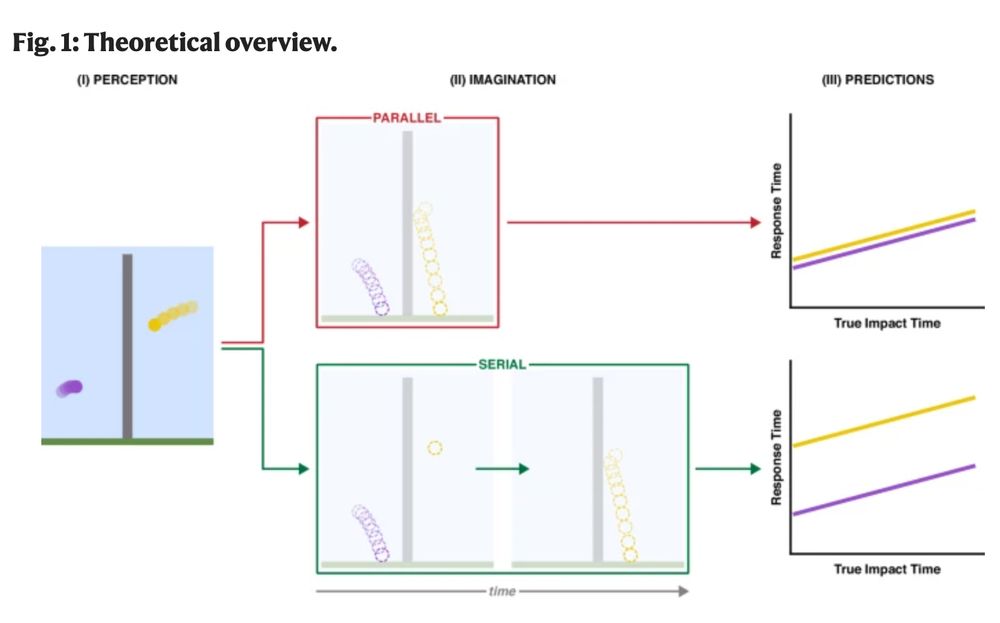
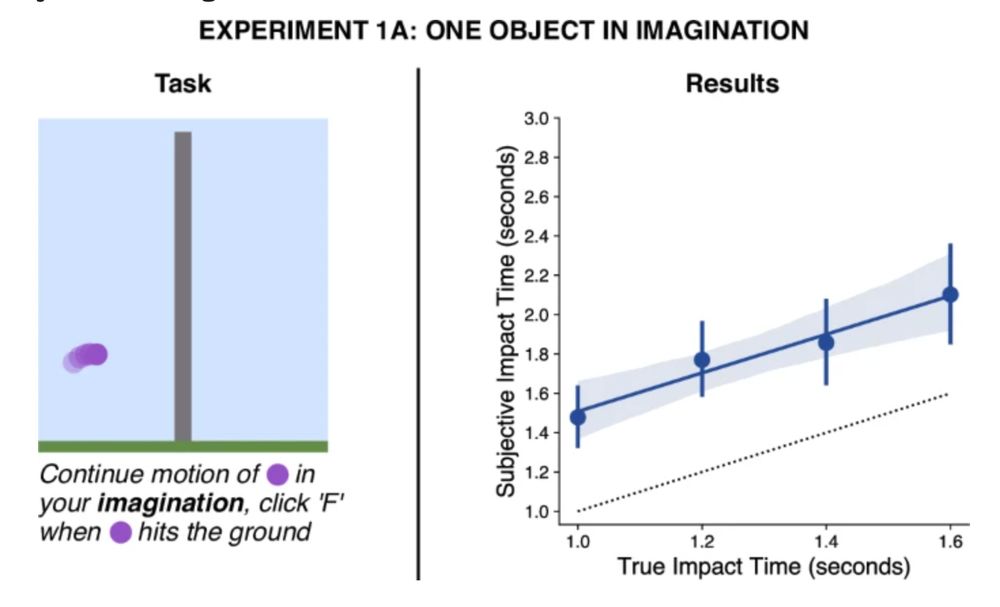
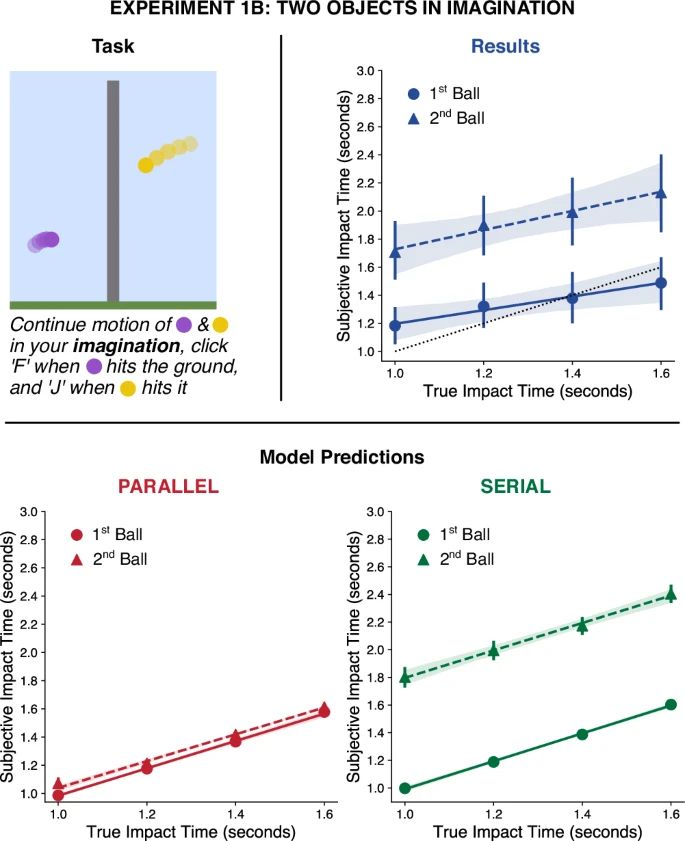
🎈 Out now: 🎈
"The capacity limits of moving objects in the imagination"
(by Balaban & me)
of interest to people thinking about the imagination, intuitive physics, mental simulation, capacity limits, and more
www.nature.com/articles/s41...
@gershbrain.bsky.social, @yangxiang.bsky.social, and I have a new project out in preprint form!
osf.io/preprints/ps...
Here are the main takeaways: (1/6)
By offering a systematic explanation of self-handicapping, we hope to lay the groundwork for developing effective interventions that target academic self-handicapping, helping people to realize their full potential. A preprint of the paper is available on PsyArxiv: osf.io/preprints/ps... (5/5)
25.11.2024 03:26 — 👍 1 🔁 0 💬 0 📌 0
We tested the theory's predictions in two experiments, showing that self-handicapping occurs more often when it’s unlikely to affect the outcome and when it increases a naive observer's perceived competence. With sophisticated observers, it’s less effective when followed by failure. (4/5)
25.11.2024 03:25 — 👍 0 🔁 0 💬 0 📌 0
Theory schematic
We developed a signaling theory of self-handicapping, involving a naive observer who evaluates the actor’s competence, an actor who seeks to impress the naive observer through strategic self-handicapping, and a sophisticated observer who considers the actor’s decision whether to self-handicap. (3/5)
25.11.2024 03:24 — 👍 0 🔁 0 💬 0 📌 0Self-handicapping is a strategy where people deliberately impede their performance to protect perceived competence in case of failure, or enhance it in case of success. Despite much prior research, it is unclear why, when, and how self-handicapping occurs. (2/5)
25.11.2024 03:23 — 👍 0 🔁 0 💬 0 📌 0Really excited about this project, and thanks so much to my wonderful collaborators @gershbrain.bsky.social @tobigerstenberg.bsky.social for making this happen! Some main takeaways in thread 🧵 (1/5)
25.11.2024 03:22 — 👍 13 🔁 1 💬 4 📌 1